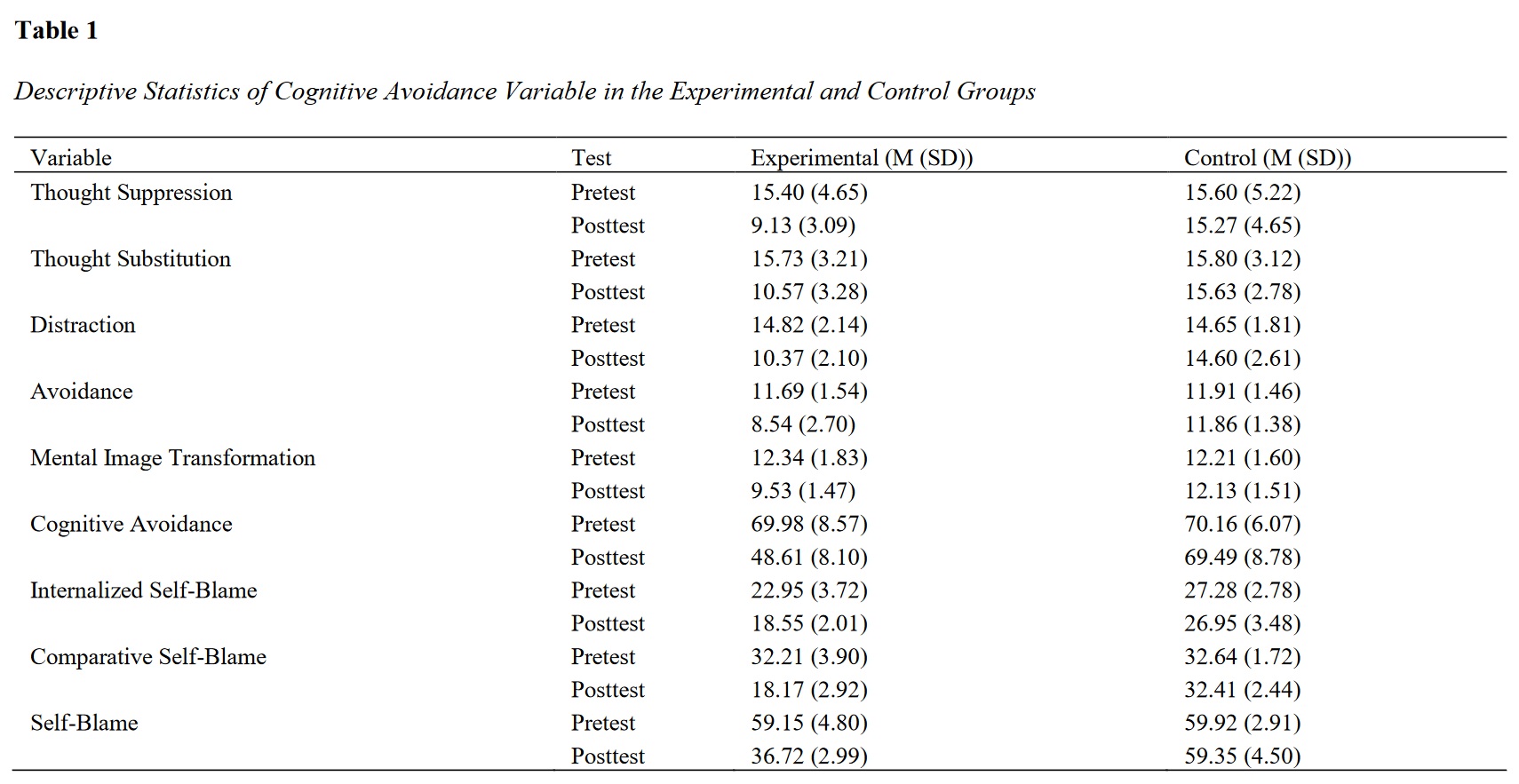The Effectiveness of Mindfulness-Based Cognitive Therapy on Self-Blame and Cognitive Avoidance in Adolescents with Subclinical Depression
Keywords:
mindfulness-based cognitive therapy, cognitive avoidance, self-blame, depression, adolescentsAbstract
Objective: The aim of the present study was to examine the effectiveness of mindfulness-based cognitive therapy on self-blame and cognitive avoidance in adolescents with subclinical depression.
Methods and Materials: This research utilized a quasi-experimental method with a pretest-posttest design and a control group. The statistical population of the present study consisted of all 16-17-year-old adolescents studying in public schools in District 2 of Sari during the 2023-2024 academic year. From 35 high schools in District 2 of Sari, two public schools, Sharif al-Olama and Al-Zahra, were randomly selected. A sample of 30 adolescents was selected using purposive sampling and assigned to experimental and control groups (15 participants each). Data were collected using the Beck Depression Inventory, Second Edition (Beck et al., 1961), the Self-Blame Scale (Thomson & Zuroff, 2004), and the Cognitive Avoidance Questionnaire (Sexton & Dugas, 2004). The mindfulness-based cognitive therapy program was conducted in eight 90-minute sessions for the experimental group, while the control group received no treatment. Data were analyzed using covariance analysis.
Findings: The findings indicated a significant difference in the posttest mean scores of the experimental group compared to the control group after controlling for pretest differences in self-blame and cognitive avoidance (P<0.001).
Conclusion: Based on the findings, it is concluded that mindfulness-based cognitive therapy is effective in reducing self-blame and cognitive avoidance in adolescents with subclinical depression and that this intervention is applicable for adolescents with subclinical depression.
Downloads

Downloads
Additional Files
Published
Issue
Section
License
Copyright (c) 2024 Elham Ghalandari (Author); Bahram Mirzaian (Corresponding Author); Seyedeh Olia Emadian (Author)

This work is licensed under a Creative Commons Attribution-NonCommercial 4.0 International License.














